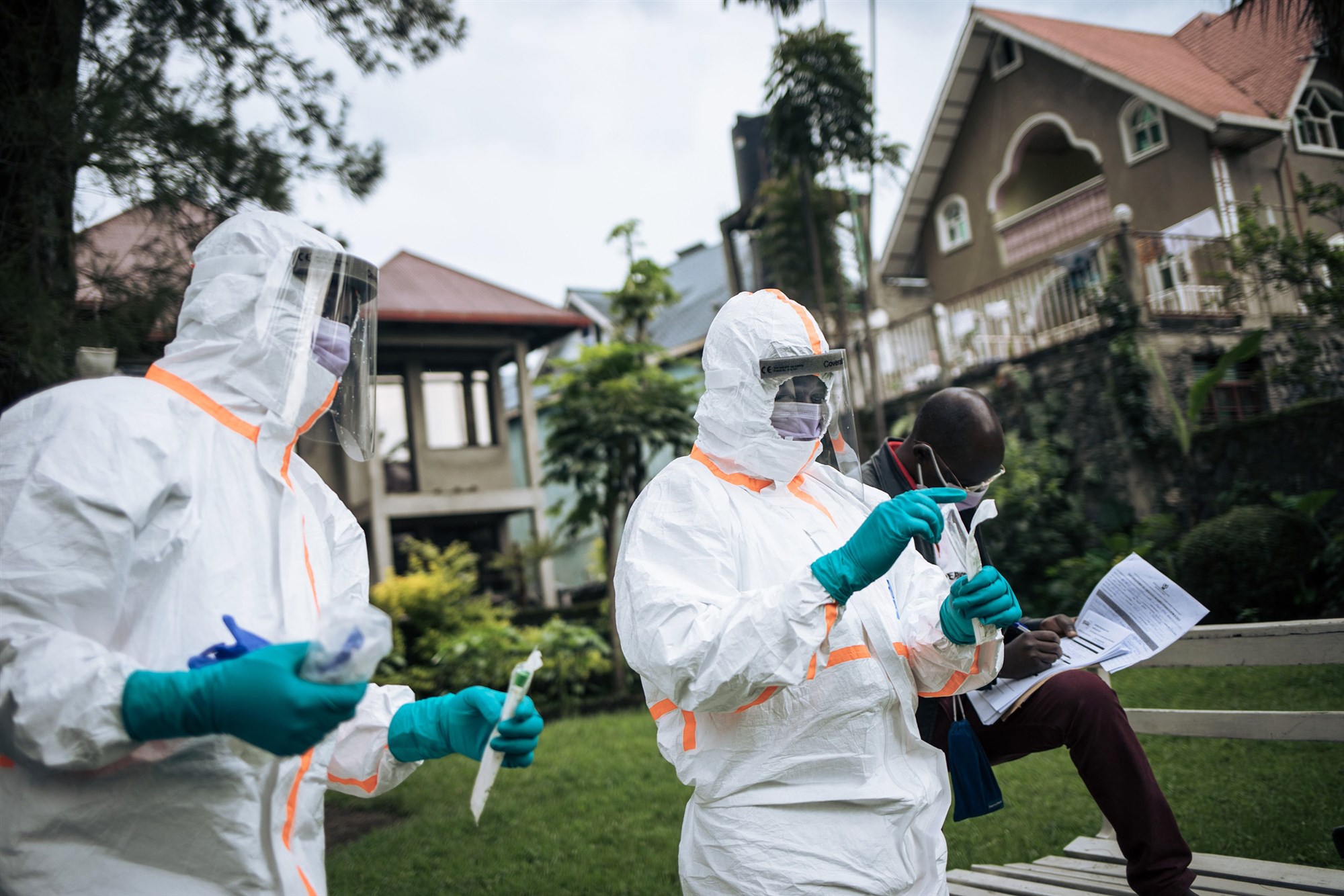African countries previously hit by deadly Ebola outbreaks are using the lessons they learned to fight the coronavirus pandemic, experts say, because they know how to rapidly track down, screen and quarantine potential patients.
“When a certain outbreak is over, you have a capacity left behind that you can build on or adapt. It could be for COVID-19 or something else tomorrow,” said Dr. Mary Stephen, a technical officer for the World Health Organization at its regional office in Brazzaville, Republic of Congo.
While the coronavirus has infected more than 1.6 million people worldwide, only 14,744 cases had been detected on the African continent as of Monday, according to the Africa Centres for Disease Control and Prevention. To avoid disaster, health officials there are racing to compensate for weaknesses in national health systems by playing to their strengths.
After keeping the nearly two-year Ebola outbreak in the Democratic Republic of the Congo from crossing the border, neighboring Uganda has now redirected its resources to fight COVID-19, the disease associated with the coronavirus.
Screening measures at borders and airports have been adapted to detect the coronavirus, said Emmanuel Ainebyoona, a spokesman for the Ugandan Health Ministry. The only miscalculation was not recognizing the United Arab Emirates as a high-risk country early on, he said, allowing several infected people to enter Uganda.
Those cases have been identified, and the tracing of contacts is underway, he said. None of the 54 confirmed cases has yet required intensive care.
Full coverage of the coronavirus outbreak
“We have really taken lessons from China. We have looked at the scenarios of how Italian cases spread,” Ainebyoona said. “We have learned from the experiences of other countries so we might forgo and prevent some mistakes that they have committed or approaches they had that didn’t work.”
African countries are also sharing best practices with one another, Stephen said.






